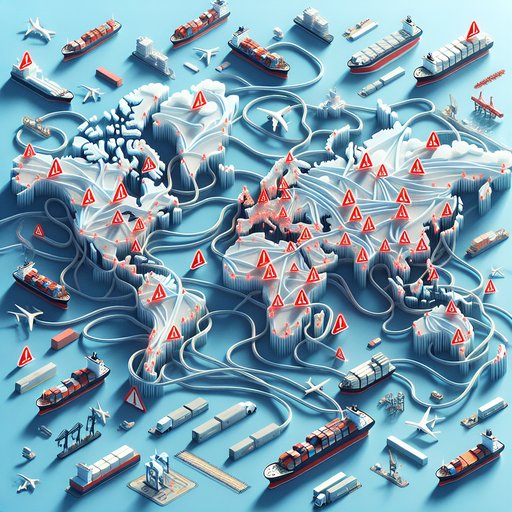
A significant transformation is occurring in the environmental, social, and governance (ESG) investment sector as nuclear energy gains recognition as a sustainable power source. This shift represents a notable departure from traditional ESG investment patterns that primarily focused on renewable energy sources like solar and wind [1].

Global supply chain challenges continue to reshape the retail landscape as major brands grapple with increased costs and logistical hurdles. American Eagle, a prominent clothing retailer, faces mounting pressure from rising supply chain expenses and intensifying competition, forcing the company to reevaluate its market strategy and pricing structure [1].

The latest labor market data reveals a significant slowdown in job growth, with the technology sector experiencing particular strain. According to recent reports, the economy added only 22,000 jobs last month [1], falling well below expectations and raising concerns about broader economic implications. The disappointing numbers have sparked discussions about potential Federal Reserve rate cuts and increasing unemployment rates across various demographics.

A wave of economic challenges is sweeping across multiple continents as nations grapple with persistent inflation and mounting cost-of-living pressures. In Indonesia, public outrage over economic conditions has sparked widespread demonstrations, while Austria faces stagflation, and families in Australia increasingly turn to grandparents for childcare support amid rising expenses.

Despite facing political challenges, Environmental, Social, and Governance (ESG) investing continues to demonstrate its importance in global financial markets. Major financial institutions and corporations are strengthening their commitment to sustainable practices, with notable developments in Asia and international markets showing the resilience of ESG investments [1].

Recent retail data reveals a complex picture of consumer spending patterns, with traditional retailers and online shopping showing notable shifts. Sales volumes exceeded expectations with a 0.6% rise [1], demonstrating resilience in the retail sector despite broader economic uncertainties. The positive trends have been particularly evident in certain consumer segments, though challenges remain in the broader economic landscape.

The U.S. housing market is experiencing a notable shift as mortgage rates have fallen to their lowest level since October 2024, potentially offering some relief to homebuyers. According to recent data, the average rate on 30-year fixed mortgages has decreased to 6.5% [1], marking a significant decline that could help improve housing affordability for many Americans.

Recent developments in the banking sector reveal a complex landscape of challenges and opportunities, with major financial institutions adapting to changing market conditions. A new Bank of America survey highlights increasing financial stress among U.S. workers, while international banks make strategic moves to expand their services and address emerging financial technologies.

Recent retail data presents a complex picture of consumer behavior across major economies. While some regions show promising growth, others face mounting pressures from economic challenges. In the UK, retail sales exceeded expectations with a notable increase, while Australia's economy demonstrated its strongest performance in two years, driven by renewed consumer confidence [1] [2].

As global supply chains continue to face unprecedented challenges, India has unveiled an ambitious $1 trillion initiative to transform itself into a maritime powerhouse. The announcement comes at a crucial time when businesses worldwide are grappling with logistics complexities and seeking alternative supply chain solutions. According to industry experts, the disruptions of 2025 have fundamentally reshaped global trade patterns, creating both challenges and opportunities for emerging maritime hubs [1].
























